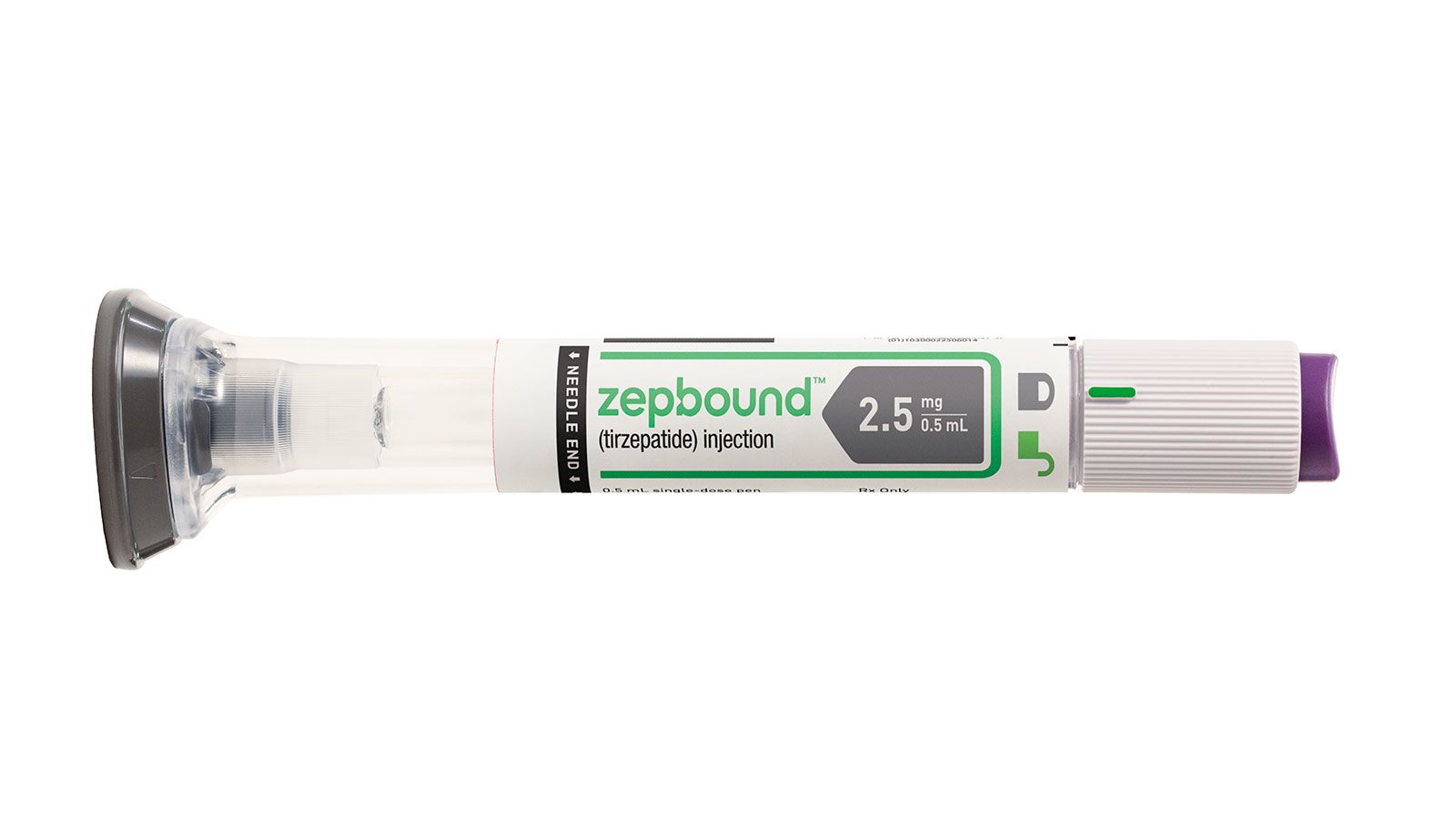Table of Contents
Zepbound Simplified: What Makes It Special?
The U.S. Food and Drug Administration (FDA) approved Zepbound® (tirzepatide) as the first and only prescription medicine for adults with moderate-to-severe obstructive sleep apnea (OSA) and
obesity.
Zepbound may help adults with moderate-to-severe obstructive sleep apnea and obesity improve their sleep disorder. It should be used with a reduced-calorie diet and increased physical activity.
What is OSA?
OSA is a sleep-related breathing disorder characterized by complete or partial collapses of the upper airway during sleep, which can lead to pauses in breathing (apnea) or shallow breathing (hypopnea) and a potential decrease in oxygen saturation and/or waking from sleep. One of the hallmarks of OSA is snoring, but fatigue, excessive daytime sleepiness and disrupted sleep are also key symptoms, making this serious condition easily overlooked.
Why FDA approved Zepbound?
Zepbound was about five times more effective than placebo in reducing breathing disruptions in adults not on PAP therapy, leading to 25 fewer breathing disruptions per hour with Zepbound and five with placebo. In adults on PAP therapy, Zepbound led to 29 fewer breathing disruptions per hour compared to six with placebo.
After one year, 42% of adults on Zepbound and 50% of adults on Zepbound with PAP therapy experienced remission or mild, non-symptomatic OSA, compared to 16% and 14% on placebo, respectively.
In addition to improved OSA symptoms, adults on Zepbound lost an average of 45 lbs (18%) of their body weight, while adults on Zepbound with PAP therapy lost an average of 50 lbs (20%) of their body weight, compared to 4 lbs (2%) and 6 lbs (2%) on placebo, respectively.
Who should not be taking Zepbound?
- Zepbound contains tirzepatide and should not be used with other tirzepatide-containing products or any GLP-1 receptor agonist medicines
- Not to be used by Children
- Zepbound may cause tumors in the thyroid, including thyroid cancer. Watch for possible symptoms, such as a lump or swelling in the neck, hoarseness, trouble swallowing or shortness of breath. If you have any of these symptoms, tell your health care provider. Do not use Zepbound if you or any of your family have ever had a type of thyroid cancer called medullary thyroid carcinoma (MTC).
- Do not use if you have Multiple Endocrine Neoplasia syndrome type 2
- Do not use Zepbound if you have had a serious allergic reaction to tirzepatide
- The most common side effects of Zepbound include nausea, diarrhea, vomiting, constipation, stomach (abdominal) pain, indigestion, injection site reactions, feeling tired, allergic reactions, belching, hair loss and heartburn.
How to take Zepbound?
Zepbound® (tirzepatide) injection is FDA-approved to treat adults with moderate-to-severe obstructive sleep apnea and obesity. It is also approved in combination with a reduced-calorie diet and increased physical activity to reduce excess body weight and maintain weight reduction long term in adults with obesity or adults with overweight in the presence of at least one weight-related comorbid condition.
- Read the Instructions for Use that come with Zepbound.
- Use Zepbound exactly as your healthcare provider says.
- Use Zepbound with a reduced-calorie diet and increased physical activity.
- Zepbound is injected under the skin (subcutaneously) of your stomach (abdomen), thigh, or upper arm.
- Use Zepbound 1 time each week, at any time of the day.
- Change (rotate) your injection site with each weekly injection. Do not use the same site for each injection.
- If you take too much Zepbound, call your healthcare provider, seek medical advice promptly, or contact a Poison Center expert right away at 1-800-222-1222.
Zepbound Side Effects
- Severe Stomach Problems
- Kidney Problems
- Gallbladder Problems
- Inflammation of the Pancreas
- Allergic Reactions
- Low blood sugar
- Changes in vision in patients with type 2 diabetics
- Mood Swings
Review these questions with your healthcare provider:
- Do you have other medical conditions, including problems with your pancreas or kidneys, or severe problems with your stomach, such as slowed emptying of your stomach (gastroparesis) or problems digesting food?
- Do you take diabetes medicines, such as insulin or sulfonylureas?
- Do you have a history of diabetic retinopathy?
- Are you scheduled to have surgery or other procedures that use anesthesia or deep sleepiness (deep sedation)?
- Do you take any other prescription medicines or over-the-counter drugs, vitamins, or herbal supplements?
- Are you pregnant, plan to become pregnant, breastfeeding, or plan to breastfeed? Zepbound may harm your unborn baby. Tell your healthcare provider if you become pregnant while using Zepbound. It is not known if Zepbound passes into your breast milk. You should talk with your healthcare provider about the best way to feed your baby while using Zepbound.
You might also like 4 Most Relaxing music for Meditation













